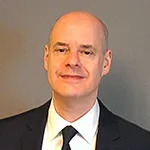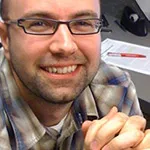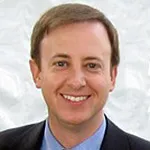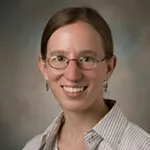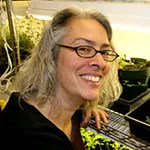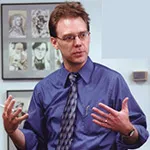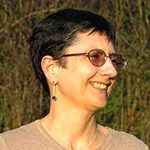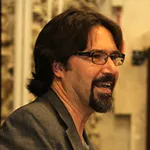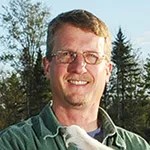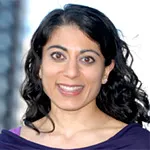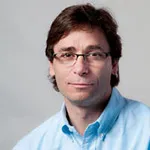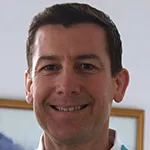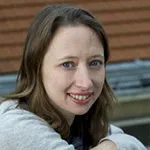For the Love of Honors
May 29th, 2013Spring flowers bloom and warm breezes stir the air as another academic year draws to a close at Swarthmore. But before they graduate, seniors participating in the Honors Program must first face written and oral evaluations by examiners who are among the best in their areas of expertise.
The only undergraduate program of its kind in the United States, Swarthmore's Honors Program is modeled on the tutorial system at Oxford University, where the College's seventh president Frank Aydelotte was a Rhodes Scholar. For nearly 100 years, the program has embodied Swarthmore's commitment to dedicated learning and the life of the mind.
For honors examiners who are also Swarthmore alumni, and often honors graduates themselves, the end of the academic year is an especially poignant time. This year, alums represented 20 of the more than 120 examiners who came to campus, reflecting a wide variety of disciplines and interests. Reflecting on the experience (below) are a dozen of them.
William Cohen '85
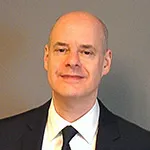
William Cohen '85 At Swarthmore: English literature Now: Professor and Chair of the English Department, University of Maryland
My honors work at Swarthmore was the most intellectually concentrated experience I've ever had, at least as revelatory and exciting as any period in graduate school. I found the preparation for honors exams was also more intense even than Ph.D. orals.
Serving as an examiner this year was a fascinating and gratifying experience. I can't say that, as a student, I imagined returning as an examiner. But since I became a faculty member myself, I have wondered what it would be like to participate in this capacity. The students' level of preparation is astonishing, and the amount of work they do in their seminars goes well beyond what most graduate students do.
Of the many things I learned in my honors seminars, one of the most valuable was writing quickly and often, which is the best way to get practice as a writer. The sense of intellectual adventure, in alliance with the seminar leader, was often heady.
As an examiner, I was most struck by the complete removal of the evaluation process from the Swarthmore faculty's influence. Examiners conduct their assessments without consulting Swarthmore professors about individual students' performances, guided only by each other and by their sense of the students' accomplishments. There was a spirit of camaraderie and respect in the examiners' caucuses, and I was impressed by the amount of close attention paid to each student's performance.
Within American higher education, honors is an unusual and successful system, which helps to put faculty and students in conversation with a much wider circle of scholars than a small college can usually do. Being both an alumnus and an examiner makes me realize what an extraordinary asset it is to the College.
Sanford DeVoe '00
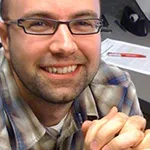
Sanford DeVoe '00 At Swarthmore: psychology major with a minor in interpretation theory Now: Assistant Professor of Organizational Behavior & HR Management, Rotman School of Management, University of Toronto
As a student, honors really gave me the experience of engaging as an academic. Conversing with a professor I didn't know from another university, who was an expert on my thesis topic, really changed the way I thought of myself and made me feel like I was part of a larger academic community. It inspired me to pursue a life as an academic when I realized I could do this.
Now, as an examiner, it influences my work by pushing me to think about the big picture and about the importance of academic work, with a focus on how it can be used to make the world a better place. There's a sort of gravitational pull in the conversations the honors exams facilitates with a budding scholar surrounded by the Swarthmore ethos.
It never occurred to me that I might be sitting on the other side of the table, but it was a great honor to be asked to do so.
Andrew Feldman '96
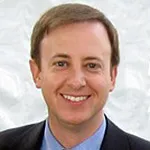
Andrew Feldman '96 At Swarthmore: economics major with a public policy concentration Now: Special Advisor for Intergovernmental Performance Management, U.S. Office of Management and Budget
Professor Rob Hollister's Labor and Social Economics seminar is a course that, without a doubt, helped shape my career. The issues we engaged in during the course are still ones I focus on today and Rob remains an important guiding influence for me. So, to be able to give back and be part of the next generation's experience in the seminar as an honors examiner, as well as head examiner for the department, means a lot.
Miriam Freedman '00
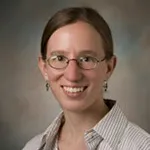
Miriam Freedman '00 At Swarthmore: chemistry major with a minor in math Now: Assistant Professor of Chemistry, The Pennsylvania State University
It was a wonderful culminating experience in college to have to learn primarily from texts, with a bit of help from classmates rather than depending mostly on lectures. The skills I learned from this approach helped me learn new topics relevant to my research in graduate school and in my postdoc, and help me today every time I have to teach a new class or write a proposal or paper on a new topic. Through external exams, I learned that I could communicate with scientists other than the professors who taught me, which was a wonderful experience to have right before graduate school.
As students, we were told that alumni were sometimes asked to be honors examiners, so I was hoping that I'd be asked to return someday.
It was interesting and fun to write an exam on a topic that I have taught, but for a class that was primarily focused on the scientific literature rather than lectures from a textbook accompanied by problems. I asked some of my favorite questions, trying to guide the students through the information that they had not had directly from the literature they read. It was interesting to see the range of answers they gave and the extent to which the students could be guided to the correct answer in the oral exams.
Jeanne Harris '86

Jeanne Harris '86 At Swarthmore: biology major Now: Associate Professor of Plant Biology, University of Vermont
I was a course student, as most biology majors were at the time, because seminars didn't have any labs associated with them, so I really had never thought about [returning as an examiner].
I really enjoy the experience, on many levels. First, it's fun to interact with smart students on a topic that I'm fascinated by. Second, the selection of papers read for the seminar is different from what I would have chosen, so although some are familiar, the rest force me to stretch and learn about science I don't know about. Finally, having to write the exam for a class I didn't give is a huge challenge, but also forces me to be creative. The fact that students who took the seminar in different years read different papers, because they were involved in selecting them, means that I have to find common ideas and move from there. It's challenging, but also fun. I tend to pick scenarios or give data from a new paper and have students interpret the results and propose the next steps.
I teach an upper-level primary literature based class once a year, and this past year I had the students pick some of the papers we discussed. I was definitely inspired to do so by seeing how well it worked for the honors seminar Professor Liz Vallen teaches. Students were very positive about it and put a lot of thought into selecting the papers and leading discussion. I will definitely use this approach again next year.
Sean Latham '94
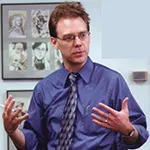
Sean Latham '94 At Swarthmore: English major with a minor in religion Now: Pauline Walter Professor of English and Comparative Literature and Chair, University of Tulsa
This marked my very first return to campus since my wife (Jennifer Besanceney-Latham '94) and I drove away from the back of Wharton Hall after we graduated. As a result, the visit was soaked in the kind of intense nostalgia that can only arise from revisiting a place so essential to the fashioning of one's identity. When I walked down the path to the student parts of campus (Danawell, Mertz, Tarble), I was overwhelmed with memories that seemed to inhere in my very body. The best example of this was the examiner's lunch in Sharples Dining Hall where I eagerly grabbed a tray and jumped in line before someone gently pointed out we were being served a sit-down meal.
When it came to the exams themselves, I was deeply impressed by the intelligence, excitement, and creativity of every student I met. I was initially worried that I might see too much of myself in them—that I might mistake the person I was examining for the nervous undergraduate who had sat in their place 19 years ago to face tough questions from a complete stranger. In fact, my wife even cautioned me against such over-identification, and reminded me not to go too easy on them. This concern faded quickly, however, when I came to realize just how extraordinary these students were. Each were possessed of unique ways of thinking, arguing, and reading.
And they were all much brighter that I had ever been. Despite the new buildings and new faculty on campus, this, at least, had not changed: these students still plainly and honestly cared about a life of the mind. They had read widely, thought deeply, and written gracefully. That intense life of the mind that had been so essential to my own experience at Swarthmore remains and it still makes the place unique.
I knew I'd be starting graduate school in the fall [after my graduation], but becoming the kind of scholar who returned to administer exams seemed unlikely. I was, however, convinced that I wanted to work in a small college where I could offer my own students the same care and attention that had been given to me. My first book, Am I a Snob?, grew directly out of my work in the honors exams at Swarthmore. I was a relatively provincial kid and found myself overwhelmed by the sophistication of my classmates; puzzling through that experience formed an important part of my early career.
And almost everything I learned about teaching, I learned from the terrific professors I had at the College. Professor Phil Weinstein taught me both how to read a book closely and how to communicate the ethical and aesthetic charge of that experience. The seminars in general made clear the importance of collaborative work, while revealing the ways in which generosity and rigor can reinforce one another.
The exams also shaped me in one more important way. When they began, I had intended to go to graduate school as a Shakespeare scholar. After a rough (perhaps even unfair) exam in this field, however, I called the graduate adviser at Brown and told him I was switching my field to modern literature. Hopefully my own return didn't occasion a similar crisis among the students I examined!
Kathryn Lesh '83
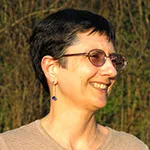
Kathryn Lesh '83 At Swarthmore: math major with a minor in English Now: Professor of Mathematics, Union College
The honors experience I had as a student has certainly influenced me and my work. For example, I make greater use than most of my colleagues of the seminar style, including student in-class presentations, students working out problems on the board in real time, weekly half-hour talks by my undergraduate thesis students, one-hour thesis defenses, etc. Since I "grew up" this way, I have the faith that students can do this (and should); and because I have that faith and the students sense my complete certainty, they can in fact do it.
It honestly never occurred to me that I might come back as an examiner, although I always planned to go to grad school in math and become a professor.
I was exceedingly nervous about being an examiner. (I was told by my Swarthmore department that this is common for alums.) I wanted the exam to be accessible enough that all my examinees had a chance to show what they know and be proud of what they had accomplished. At the same time, it should be difficult enough to allow even the truly exceptional student to feel challenged.
Likewise, in the oral exam, I wanted to probe the quality of the students' formation in the discipline, and the breadth and depth of their knowledge, without terrorizing them in the process! In the end, the honors examination process should be, for the students, like climbing a mountain—difficult, occasionally terrifying, challenging, impossible unless properly prepared for, but what a sense of accomplishment at the top. I'd love for them to say to themselves in the weeks and months after exams, "I did it!" And, in the best of all possible worlds, they would gain some insight from the honors exams themselves, gain confidence in their abilities and in their education, maybe even learn something interesting about mathematics by talking to an outsider.
That's a lot of freight to put on being an examiner. I don't know how well I met my goals—perhaps only the students could say, and only after some time has passed, so I'll probably never know. But it was an interesting opportunity to visit, meet the current generation of students, interact with the hardworking and thoughtful faculty, and reflect on my own education and its place in my career trajectory and my personal development.
Mark Lord '84
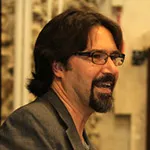
Mark Lord '84 At Swarthmore: English major with a minor in philosophy Now: Professor of Theater, Bryn Mawr College
I think [honors] helped me to feel a sense of ownership of the trajectory of my thinking, which turned into having the discipline to develop a creative practice. It gave me confidence in my ability to read and write critically and to truly feel the exhilaration of working collaboratively in an intellectual enterprise and the intense fervor of seeking to stake out one's own position, even when it seemed likely that the position might not be popular in seminar. Also, not being graded for the seminars I took to prepare for the exams transformed my sense of my professors. I felt as if they were collaborators, and sometimes co-conspirators, in my education rather than judges of my work.
When I imagined my examiners when I was a student, I pictured them as occupying the rarest of air in the very tops of their ivory towers; it was hard to believe I was in the same room with them, much less that I would ever be asked to be imagined by a new generation of students. It's really a privilege to be allowed into the tender processes of young artists who are making their first independent steps into the field.
Bruce Maxwell '91
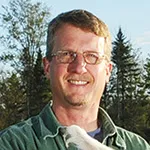
Bruce Maxwell '91 At Swarthmore: engineering and political science major Now: Professor and Chair of Computer Science, Colby College
I had some idea I was going into academia when I graduated from Swarthmore, and certainly after moving to Colby six years ago I expected to be called back [as an examiner]. But as a student, it never occurred to me that I'd be coming back in that role. As a faculty member [in the College's engineering department], I found it useful as a calibration of my teaching and the quality of our students. Now, I'm trying to bring that perspective back to Swarthmore.
It's been nice to see the creativity and insight of the honors student in both her written work and oral exam. It's also been good to catch up with friends on campus and see how things are changing, or not changing.
Having been a student here and working here for nine years, I've been involved with Swarthmore longer than anywhere else I've lived or worked. I like to keep that connection strong, and it always feels like coming home heading up Magill Walk.
Jayanti Owens '06
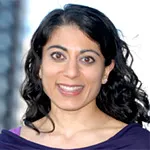
Jayanti Owens '06 At Swarthmore: political science and sociology/anthropology major with a concentration in educational studies Now: Ph.D. candidate in sociology and demography, Princeton University
Coming back to Swarthmore as an Honors examiner for Professor Keith Reeves' ('88) urban policy seminar in the Political Science Department was a chance to see things come full circle in a variety of respects. First, I was a student in Keith's Urban Policy seminar as an undergraduate myself, so returning as an examiner allowed me now to see what goes on from the other side. Second, Keith is himself an alum, so for him to invite one of his former students back was, I think, very meaningful.
Returning to Swarthmore as an examiner was very heartening. It certainly never occurred to me seven years go when I was a student that I would have the pleasure!
The examiners take their roles extremely seriously. Tremendous care and thought goes into not only the writing of the exam questions, but also into the reading and preparation of individualized questions that speak directly to each student's written exam. The goal is to create questions that challenge each student's thinking from wherever they are coming.
Every time I come back to Swarthmore, I am inspired by how well the College creates a challenging but supportive environment for students. This weekend, I saw how committed faculty and administrators are to their students and how much of themselves they devote to their students' education.
Marc Schmidt '86
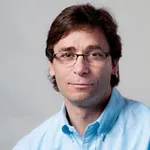
Marc Schmidt '86 At Swarthmore: biology major Now: Associate Professor of Biology & Director of the Biological Basis of Behavior Program, University of Pennsylvania
This is my fourth time being an examiner (2001, 2004, 2007 and 2013). The area that I examine is just enough out of my specific research area that, each time, I end up learning a fair amount of really interesting material from the reading list that is given to me, which has been very enjoyable. I also really enjoy meeting with the students and having good conversations with them about what they learned in class and seeing how well they can think on their feet. I have also had some very constructive conversations with other examiners and Swarthmore faculty.
Kevin Wilson '92
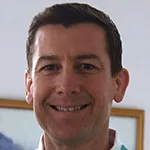
Kevin Wilson '92 At Swarthmore: psychology and philosophy major Now: Associate Professor of Psychology, Gettysburg College
It was definitely a big surprise and a real honor to be asked to serve as an external examiner. Coming back and observing the intellectual climate on campus always re-invigorates me professionally. As an alum, it was a great opportunity to reconnect with the faculty of the Psychology Department and to meet some amazing students. Meeting and getting to know the other external examiners was also really special.
Serving as an external examiner for another professor allows you to reflect on what you do in your own classes. I'm looking forward to incorporating some new ideas and new readings into my own seminars in the future, based on my experiences as an examiner this year.
Tara Zahra '98
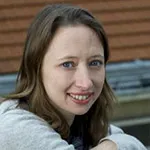
Tara Zahra '98 At Swarthmore: history and economics major Now: Associate Professor of East European History, University of Chicago
It was really fun and exciting. The students work so hard and suddenly at the end of this long process they can engage in a scholarly debate with real passion and authority, and it is terrific to be a witness to that. I was so happy for all the students - but I also just wanted to tell them all to relax!
My own honors experience was transformative for me. It was the moment I knew I wanted to be a historian. I pushed myself harder than I ever had before, and discovered a side of myself - a scholar - that I really hadn't known was there before.
The ultimate Swarthmore experience has to be coming back as an examiner. It was probably my secret goal.
